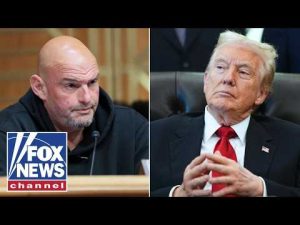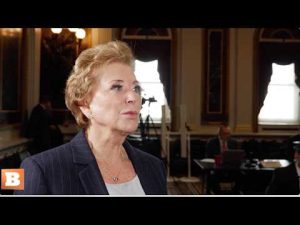In the ongoing saga of Hunter Biden, the complexity of political narratives continues to unfold. The Department of Justice has completed its investigation, supposedly clearing Hunter of serious wrongdoing, and the airwaves are filled with claims that Joe Biden is an upstanding individual, beyond reproach. However, these assertions are belied by the statements of none other than Donald J. Trump, who warned back in October that a potential pardon for Hunter was on the horizon. If one were to fully dissect this situation, it appears we are not just witnessing a political spectacle; we are observing a classic case of selective transparency.
For those still getting their bearings in this situation, it’s essential to understand what Trump was implying. He hinted that Joe Biden, despite public denials, would likely pardon his son, Hunter, for his alleged past misdeeds. Trump called Hunter a “bad boy,” suggesting that the gravity of the situation is not lost on anyone, including the current President. This sort of candid commentary reveals an important question: who truly bears responsibility for navigating the moral complexities of political family dynamics? It seems to be a classic case of ‘do as I say, not as I do,’ as certain players in the political theater seem willing to look the other way.
As recently as November 7, the White House Press Secretary vehemently denied any plans for a pardon. “We’ve been asked that question multiple times in our answer stands, which is no,” she stated. Yet, merely weeks later, Trump’s predictions loom larger than truth. If the White House rhetoric is any indication, the Biden administration has been caught in a web of contradictions. This instance serves as a stark reminder that political communication is often more about optics than substance.
The implications of this situation stretch beyond just one family. They challenge the integrity of the justice system and the idea of accountability in politics. If the son of a sitting president could potentially escape the consequences of his actions through a pardon, what message does that send to the American people? It certainly raises eyebrows, especially among those who strongly believe in equal justice under the law, regardless of political lineage.
In the grander scheme, this scenario might also reveal something crucial about the Biden administration’s approach to governance. If the predictions from November hold water, a pardon may very well be at play, and trust in government will erode ever further. As Americans continue to navigate through this political terrain, it’s essential that they remain vigilant, informed, and prepared to demand accountability. After all, nothing says “I uphold the law” quite like a last-minute pardon for family. It could almost be a plot twist in a political thriller—if it weren’t so real and, frankly, concerning.







